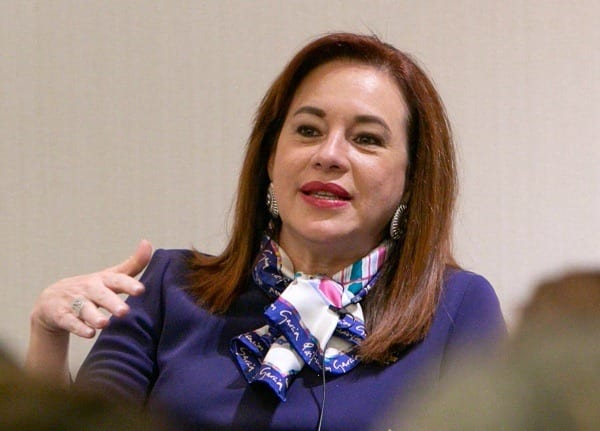These recent statistics confirm that when it comes to global political power, women are still markedly behind men.
U.N General Assembly President Maria Fernanda Espinosa told delegates to the Commission on the Status of Women on Tuesday, that in recent years there has been a “serious regression” in the political power of women across the world.
The Commission on the Status of Women is the principal global intergovernmental body dedicated to the promotion of gender equality and the empowerment of women.
Espinosa, the former Ecuadorian Foreign Minister stressed the need for greater representation of women in parliaments to ensure that reforms and discriminatory laws can be pushed forward. She also painted a bleak picture of the future of gender parity.
“In 2015, it would have taken 30 years to close the gender gap, but if trends continue, gender equivalence will not be reached for 107 years,” she said.
President of the General Assembly, @mfespinosaEC and women Heads of State and Government discussed how to accelerate women’s leadership at #CSW63. #WomenInPower https://t.co/M6n9RM4iV2
— UN Women (@UN_Women) March 13, 2019
Statistics released from the Inter-Parliamentary Union last week indicated that the percentage of female elected heads of state have dropped form 7.2% to 6.6% from 2017 to 2018.
In the same period, the percentage of female heads of government dropped from 5.7& to 5.2%.
The UN Secretary General, Antonia Guterres informed the Commission of the Status of Women that despite the many obstacles women face, there must be push back against the push back.
“We will not give up until we reach parity across the board,” he said.
Phumzile Mlambo-Ngcuka, the executive director of UN Women, called the current reality “not the most enabling for women to rise.”


